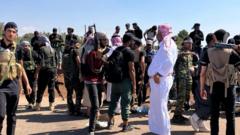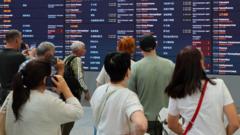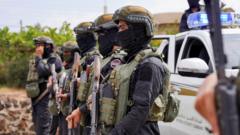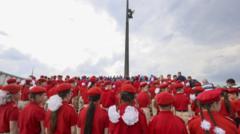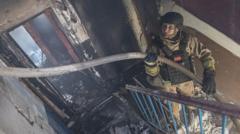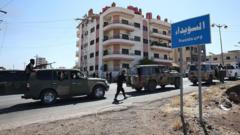In a recent round of peace talks held in Istanbul, Ukraine and Russia found themselves unable to make significant advancements toward ending the conflict, with a primary focus on a prisoner swap rather than addressing key ceasefire demands.
Stalemate in Istanbul: Ukraine and Russia Make Limited Progress in Peace Talks

Stalemate in Istanbul: Ukraine and Russia Make Limited Progress in Peace Talks
Amid ongoing conflict, Ukraine and Russia conclude peace talks with a minor agreement on prisoner exchanges, yet major issues of ceasefire remain unresolved.
The second round of peace negotiations between Russia and Ukraine has concluded in Istanbul, yielding minimal progress toward resolving the ongoing conflict. While both parties reached an agreement to facilitate the exchange of prisoners of war, crucial issues, including the call for an unconditional ceasefire by Ukraine, were left unaddressed.
Ukrainian officials have reported that Russia once again dismissed the request for an "unconditional ceasefire," which is a central demand not only from Kyiv but also from its allies in Europe and the United States. In contrast, the Russian delegation proposed a temporary truce lasting two to three days in select areas along the extensive front lines, although details regarding the implementation of such a truce were not disclosed.
During the hour-long meeting on Monday, representatives from both nations did agree to exchange all sick and seriously wounded prisoners of war, as well as those under the age of 25. This limited agreement came amidst growing skepticism regarding the likelihood of a comprehensive peace deal, given the entrenched positions of both countries following Russia's full-scale invasion of Ukraine in February 2022. Currently, Russian forces maintain control over approximately 20% of Ukrainian territory, including Crimea, which has been under Russian control since its annexation in 2014.
Ukrainian Defence Minister Rustem Umerov, leading the negotiations for Kyiv, reiterated the necessity for a complete and unrestricted ceasefire to alleviate the ongoing violence. He emphasized that Ukraine had already submitted its proposals for a truce, hoping for a timely response from Russia, which was notably absent during the talks.
Following the meeting, Russian delegation head Vladimir Medinsky confirmed the agreement to exchange prisoners but did not specify when the exchanges would take place. He also mentioned that Russia intends to return the bodies of 6,000 Ukrainian soldiers in the near future.
In light of the challenges faced in reaching an agreement, Ukrainian President Volodymyr Zelensky and European leaders have accused Russia of intentionally stalling negotiations to gain further territorial advantages. This accusation reflects the complicated geopolitical dynamics at play, including U.S. President Donald Trump's approach to the situation, which has included calls for a rapid resolution while simultaneously withholding punitive measures against Russia. Trump's candid critique of President Putin comes amid heightened tensions in Ukraine, marked by significant Russian drone and missile strikes.
As these negotiations unfold, the path to peace remains uncertain, highlighting the complexities surrounding the ongoing war in Ukraine and the differing narratives that characterize the conflict.




